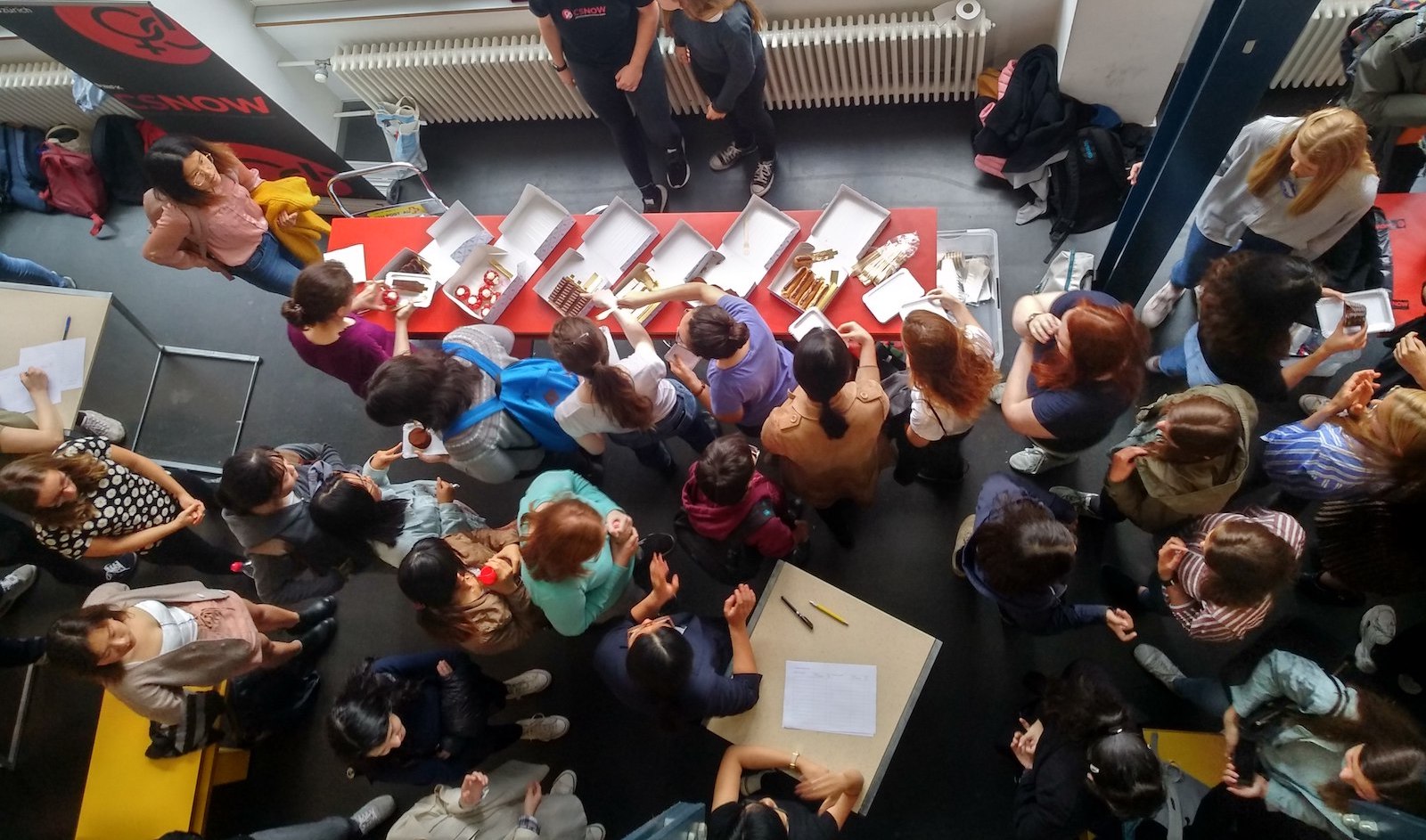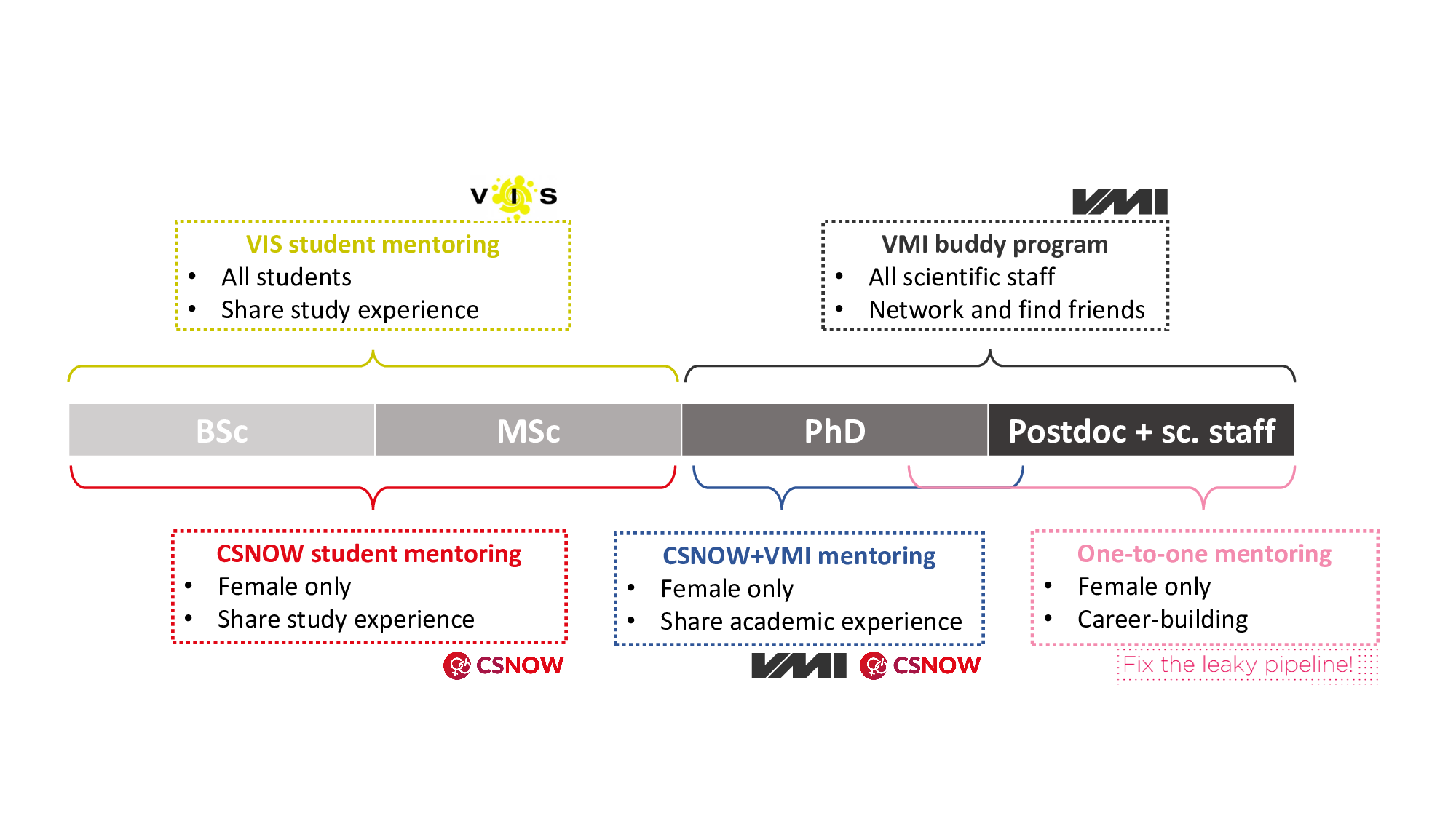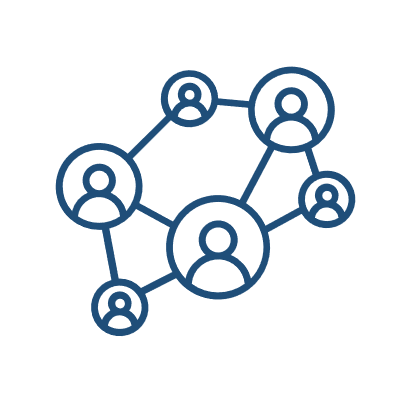Mentoring
Our mentoring program for bachelor and master students begins every autumn. Together with the VMI, we organize a mentoring program for doctoral students and postdocs.

For women* Bachelor and Master students
Our mentoring program allows first semester students to meet and talk with older students. At the beginnning of every autumn semester, we organize a kick-off event where potential mentees (first semester students) and mentors (higher semester students) are invited to join.
The goal is to facilitate and shape the mentee's start at ETH with the help of a mentor, who can pass on their own experiences. How exactly this happens is left to the individual mentor-mentee pairs, be it simply a role as a contact person or a regular exchange. At the start, we could all use an expert who knows where the best study spots are on campus, how to organize time between all the courses and, of course, where the best coffee is to be found!
The program is very successful: about half of all new women* students become mentees and many come back again as mentors.
Sound good to you? Then stay tuned, at the beginning of the autumn semester we send out infos and an invitation to everybody!
For women* Doctoral students and Postdocs
The transition between student and academic life can be tricky and confusing for everyone, from learning how to be a good researcher to thinking about your career goals - and anything in between!
It often helps to informally chat with older peers that have faced similar problems and asked similar questions in the past. Unfortunately, for women* PhD students it is not always easy to get to know older women* PhD students or Postdocs, as there might not be (m)any in the same research group.
The goal of the new mentoring program is to help young women* scientists to find a suitable mentor within our faculty. The concrete details of the mentee-mentor relationship (content, regularity of meetings, etc.) is completely up to each pair. But we are of course very happy to provide guidance and tips for building a beneficial mentee-mentor relationship and will offer further support if necessary.
Would you like to benefit from the mentoring program or would you like to participate as a mentor? You can sign up at any time during the year!
Joint program with VMI
Become a external page mentee
Become a external page mentor

Mentoring Program Roadmap
Are you not sure which mentoring program you can be part of? Here we will briefly explain the different possibilities, for all members of the department. All information here is also compactly represented in our graph.
If you are in a bachelor's or master's program, then there are two options. The CSNOW student mentoring is only available for women* students. Instead, the VIS student mentoring program is open to all students. These programs are a great opportunity to share study experiences with each other!
For women* PhDs, the CSNOW+VMI mentoring program is available. Here you have the chance to exchange academic experience and connect with other researchers of the department.
For women* postdocs and scientific staff, a one-to-one mentoring program is offered. With this program, researchers can build and advance their career with a mentor from the department.
For all PhDs, postdocs and scientific staff, the VMI buddy program is available. This program offers the chance to network among colleagues in the departments and to help make new friends!
Hear it from our mentors and mentees!

“Thanks to CSNOW, I was able to have an extremely helpful mentor during my first BSc year, the hardest year of my studies. I then decided to give back to the community and become a mentor myself; I can’t wait to do it again!”Flavia Cavaliere, MSc

“Having a supportive mentor during your first year studying computer science at ETH is precious. I could get answers to all of my questions regarding the studies, exams and courses while enjoying a lunch break or a stroll in the forest with her.”Elif Emanet, BSc

“As a CSNOW mentor I was able to tell younger people the things I wish someone had told me when I started. For example, that struggling with ETH classes is very normal and that everyone goes through it, even if people tend to hide their struggles. Making new people feel welcome was the most important part to me.”Lukas Walker, MSc